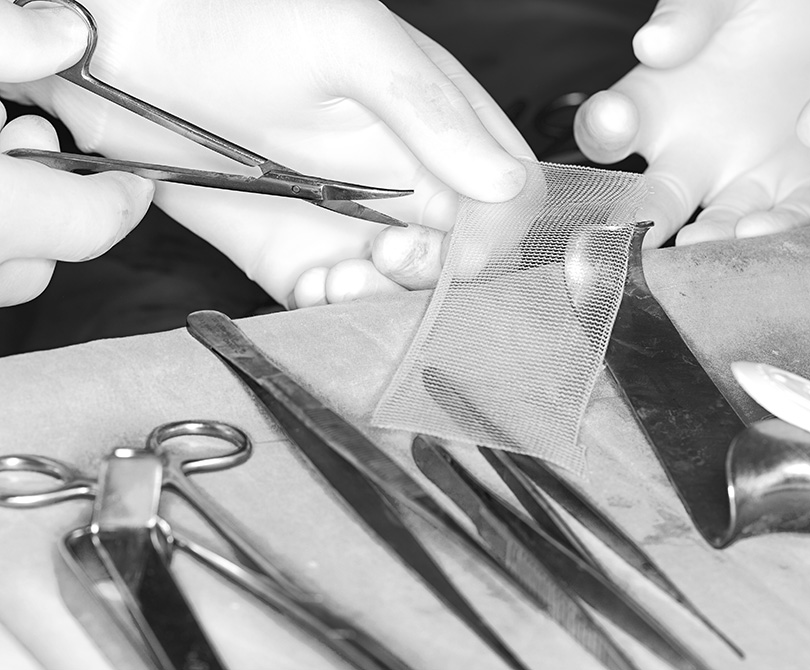
Today’s general surgery procedures benefit from new, improved devices and supplies that improve the surgeon’s ability to affect better outcomes for patients. Medical textiles are leading these advancements.
![]()
Textile-Based Biomaterials & Medical Devices Support General Surgery
Today’s general surgery procedures benefit from new, improved devices and supplies that improve the surgeon’s ability to affect better outcomes for patients. Medical textiles are leading these advancements.
![]()
General surgery offerings continue to evolve and change as new procedures are developed in support of better outcomes for patients. The right devices and supplies can benefit surgeons and their teams by offering better performance, flexibility, and reliability. Increasingly, manufacturers are integrating biomedical textiles into their devices due to the material properties and nearly unlimited shapes and geometries that engineered textile structures can provide. Used both internally and externally for surgery, textiles are used for soft tissue repair, powered irrigation surgery, topical hemostasis, organ transplants, catheter reinforcement, catheter steering, orthopedic implants, and in sutures, pain pads, wound dressings, surgical meshes, plastic surgery applications, breast reconstruction and more.
With deep engineering expertise in creating unique and effective geometries with textiles, we strive to strike the right balance of size and strength for use in general surgery applications. We offer extensive physical and mechanical testing capabilities and our customers appreciate that textiles have much more compliant properties and sustainable properties than other animal-derived and bioresorbable materials on the market. You can put your trust in our reliability in critical areas such as deep material and construction knowledge, extensive engineering and manufacturing capabilities, proven quality management systems and a culture of confidentiality for all of our OEM customers.
Textiles can be formed into nearly limitless combinations of geometries through a blend of material selection and process engineering. Leveraging unique characteristics such as stability, porosity, flexibility, and thicknesses, which can all be controlled and customized – the possibilities for innovative devices are endless.
Advantageous Properties of Textiles
The availability of many different types of medical textile solutions means surgeons and other medical personnel can select the materials, shapes, and geometries that offer the most advantages to patients. Textiles can be knitted, woven, braided, and assembled in specific ways to affect better patient outcomes.
Key benefits when designing with medical textiles include:
- Flexibility of the final product
- Ability to match the human anatomy
- Customizable into shapes
- Seamlessly integrate within the body
- Highly customizable fabrications
- Biocompatible
- Low profile
- Metal-free
- Strong
- Compliant
- Inherent capabilities for promoting tissue growth
- Retention of tensile strength
- Visibility (based on color)
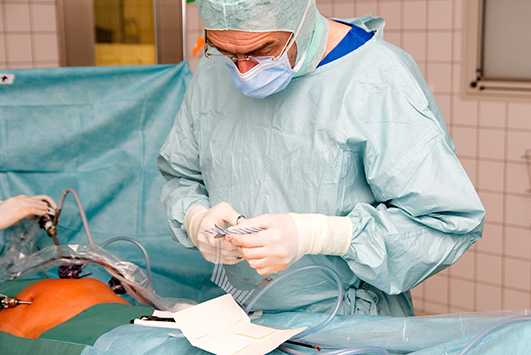

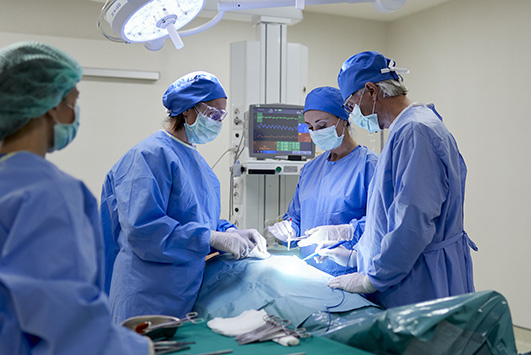
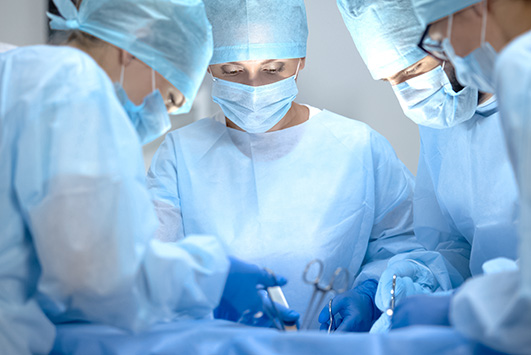
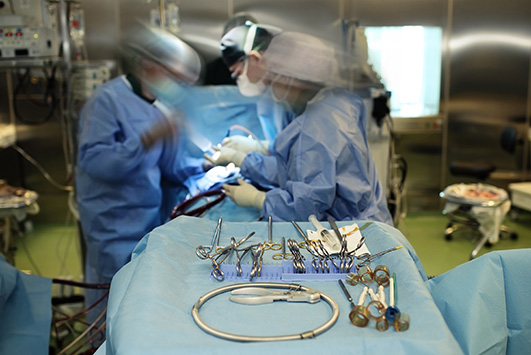
General surgery offerings continue to evolve and change as new procedures are developed in support of better outcomes for patients. The right devices and supplies can benefit surgeons and their teams by offering better performance, flexibility, and reliability. Increasingly, manufacturers are integrating biomedical textiles into their devices due to the material properties and nearly unlimited shapes and geometries that engineered textile structures can provide. Used both internally and externally for surgery, textiles are used for soft tissue repair, powered irrigation surgery, topical hemostasis, organ transplants, catheter reinforcement, catheter steering, orthopedic implants, and in sutures, pain pads, wound dressings, surgical meshes, plastic surgery applications, breast reconstruction and more.
With deep engineering expertise in creating unique and effective geometries with textiles, we strive to strike the right balance of size and strength for use in general surgery applications. We offer extensive physical and mechanical testing capabilities and our customers appreciate that textiles have much more compliant properties and sustainable properties than other animal-derived and bioresorbable materials on the market. You can put your trust in our reliability in critical areas such as deep material and construction knowledge, extensive engineering and manufacturing capabilities, proven quality management systems and a culture of confidentiality for all of our OEM customers.
Textiles can be formed into nearly limitless combinations of geometries through a blend of material selection and process engineering. Leveraging unique characteristics such as stability, porosity, flexibility, and thicknesses, which can all be controlled and customized – the possibilities for innovative devices are endless.
Qualities that Matter
The availability of many different types of medical textile solutions means surgeons and other medical personnel can select the materials, shapes, and geometries that offer the most advantages to patients. Textiles can be knitted, woven, braided, and assembled in specific ways to affect better patient outcomes.
Key benefits when designing with medical textiles include:
- Flexibility of the final product
- Ability to match the human anatomy
- Customizable into shapes
- Seamlessly integrate within the body
- Highly customizable fabrications
- Biocompatible
- Low profile
- Metal-free
- Strong
- Compliant
- Inherent capabilities for promoting tissue growth
- Retention of tensile strength
- Visibility (based on color)






